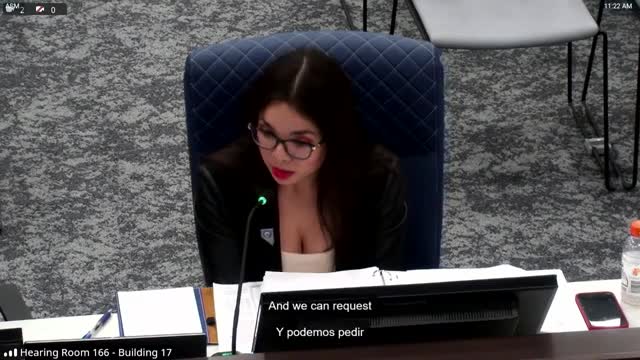Commission on Ethics seeks new case-management system to replace manual processes

Summary
The Nevada Commission on Ethics asked the money committees for funding to build a new case management and publication system to replace a limited current platform, citing improved accuracy, reporting and customer service; the agency is not requesting additional positions this session.
The Nevada Commission on Ethics asked the joint Senate Finance and Assembly Ways and Means committees for funding to implement a new case management and publication system and to cover certain ongoing technology and training costs.
Commission Chair Scott Scherer and Executive Director Ross Armstrong told the committees the agency has seven staff and is not requesting additional positions this session; instead, the primary enhancement request is a technology modernization. "There's lots of manual tracking of cases and legal deadlines," Armstrong said. He proposed a first-year project budget of about $252,000, of which $66,000 would be general fund, to procure a system that better supports data collection, draft-document generation and workload tracking.
Armstrong described current operational limits in the agency's existing platform: no automated draft documents, limited routing and hard-coded email behavior that still CC's a retired senior legal researcher on incoming items. He said the commission completed a request for information that produced nine vendor responses and had finished required preliminary procurement steps. The requested system, he said, would increase accuracy of legal documents, support data-driven outreach and enable earlier identification of trends such as disclosures, abstentions or "cooling off" issues.
The commission reported rising caseloads after a COVID-era lull. Armstrong said the office received 135 complaints in fiscal year 2024 and that 56% of incoming complaints were about county officials; advisory opinion requests were led by cities, followed by the state and counties.
The Commission also noted that civil penalties the commission imposes are forwarded to the general fund; Armstrong clarified that penalty receipts recorded on the agency chart represent the year the money was received. Two cases with appeals were described: one has a $20,000 fine and the other about $1,000; both were pending appeal. Armstrong said one appeal is likely to resolve this calendar year, while the other was before the Supreme Court and the timing was uncertain.
Committee members asked how the new technology would improve workflow beyond basic tracking. Armstrong said improvements would raise document accuracy, enable better reporting on trends and reduce repetitive manual drafting. The commission said it will conduct a time study to inform possible future staffing requests and highlighted that prior session funding added an outreach and education officer that has expanded its proactive training work.
The committee closed the ethics presentation after questions about workflow efficiencies and the timing of appeals and transfers to the general fund.

